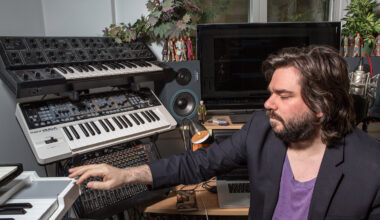French producer Aho Ssan makes stunning experimental music, drawing a host of zeitgeisty contributors into his orbit. No wonder his new work ‘Rhizomes’ reads like a who’s who of contemporary underground electronica
Want to read more?
Sign up to Electronic Sound Premium to gain access to every post, video, special offers, and more. 100%, all you can eat, no commitment, cancel any time.
Already a premium member? Log in here






